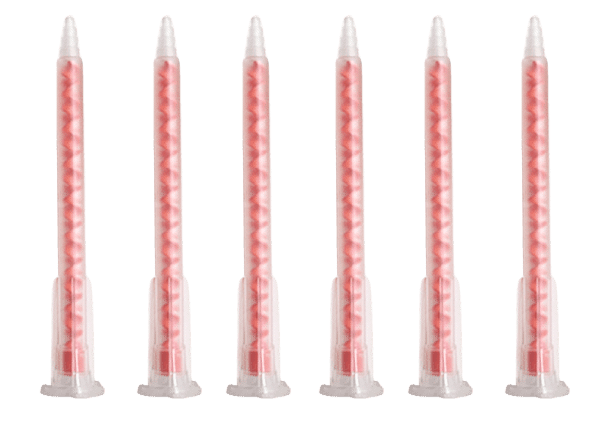Epoxy adhesives are widely used in various industries for their strong bonding properties and versatile applications. These adhesives typically come in two-part systems that require thorough mixing before application. To facilitate this mixing process, special mixing nozzles are often used. However, one common issue that users encounter is the cracking of these mixing nozzles under pressure, leading to inefficiencies and potential product wastage. Here are some essential tips to prevent epoxy mixing nozzle cracks caused by pressure:

Understanding the Problem:
Cracking of epoxy mixing nozzles is often a result of excessive pressure buildup within the nozzle during the mixing and application process. The pressure can arise due to various factors, including:
Viscosity of the Epoxy: High-viscosity epoxy can exert more pressure within the nozzle, increasing the likelihood of cracks.
Improper Mixing Ratios: Incorrect proportions of the epoxy components can affect the flow properties, causing uneven pressure buildup.
Application Speed and Technique: Rapid or forceful application can elevate pressure within the nozzle, leading to cracks.
Preventive Measures:
-
Use Properly Calibrated Equipment:
Ensure that the dispensing equipment, including the dispensing gun and cartridges, are calibrated and compatible with the epoxy being used. This helps maintain optimal pressure levels during application.
-
Optimize Mixing Ratios:
Follow the manufacturer’s instructions meticulously to maintain the correct mixing ratios. Deviations can alter the epoxy’s viscosity, affecting pressure levels and potentially causing cracks.
-
Control Temperature:
Extreme temperatures can impact epoxy viscosity, affecting flow and pressure. Maintain the epoxy and dispensing equipment at recommended temperatures to prevent abrupt changes in viscosity.
-
Control Application Speed:
Avoid overly rapid or forceful application of the epoxy. Gentle and controlled application helps manage pressure within the mixing nozzle.
-
Monitor Nozzle Condition:
Regularly inspect the mixing nozzles for any signs of wear, damage, or clogging. Replace nozzles at the first indication of damage to prevent pressure irregularities.
-
Consider Lower Viscosity Formulas:
When possible, opt for lower viscosity epoxy formulations. These tend to exert less pressure within the nozzle, reducing the likelihood of cracks.
-
Practice Proper Handling and Storage:
Store epoxy components according to the manufacturer’s guidelines. Improper storage can lead to changes in viscosity, affecting pressure levels during application.
-
Conduct Test Runs:
Before actual application, conduct test runs with the epoxy and mixing nozzles to evaluate pressure levels. Adjust settings or equipment if pressure-related issues arise during these tests.
Conclusion:
Preventing epoxy mixing nozzle cracks due to pressure involves a combination of careful adherence to manufacturer instructions, proper equipment handling, and maintaining optimal application conditions. By controlling factors like viscosity, mixing ratios, application speed, and equipment quality, users can significantly reduce the risk of nozzle cracks, ensuring smooth and efficient epoxy application processes.
Remember, each epoxy formulation and dispensing system may have its nuances, so always refer to the specific guidelines provided by the manufacturer for the best results.
